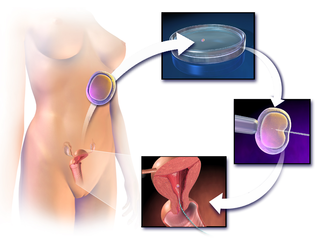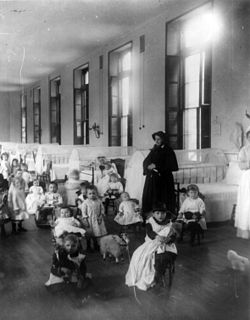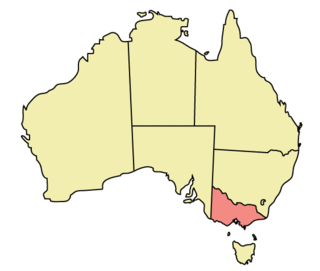The Victorian Gay and Lesbian Rights Lobby (VGLRL) is the peak lobby group in Victoria, Australia for the attainment of equality, human rights and social justice for the entire Gay, Lesbian, Bisexual, Transgender and Intersex (GLBTI) community.[ citation needed ]
Gay is a term that primarily refers to a homosexual person or the trait of being homosexual. The term was originally used to mean "carefree", "cheerful", or "bright and showy".

A lesbian is a homosexual woman. The word lesbian is also used for women in relation to their sexual identity or sexual behavior, regardless of sexual orientation, or as an adjective to characterize or associate nouns with female homosexuality or same-sex attraction.

Transgender people have a gender identity or gender expression that differs from their sex assigned at birth. Some transgender people who desire medical assistance to transition from one sex to another identify as transsexual. Transgender – often shortened as trans – is also an umbrella term: in addition to including people whose gender identity is the opposite of their assigned sex, it may include people who are not exclusively masculine or feminine. Other definitions of transgender also include people who belong to a third gender, or else conceptualize transgender people as a third gender. The term transgender may be defined very broadly to include cross-dressers.
Contents
VGLRL was created in October 1997, following presentation of a report to a public meeting which proposed a model for a Victorian Gay and Lesbian Rights Lobby. This model was accepted, and 21 days later the Lobby held its first annual general meeting, elected a management committee, adopted the rules of association, and began the process of incorporation. [1]
VGLRL has worked on a variety of issues such as domestic partnerships, [2] access to in vitro fertilisation and adoption, [3] and an end to homophobic violence. [4]
A domestic partnership is an interpersonal relationship between two individuals who live together and share a common domestic life, but are not married. People in domestic partnerships receive benefits that guarantee right of survivorship, hospital visitation, and others.

In vitro fertilisation (IVF) is a process of fertilisation where an egg is combined with sperm outside the body, in vitro. The process involves monitoring and stimulating a woman's ovulatory process, removing an ovum or ova from the woman's ovaries and letting sperm fertilise them in a liquid in a laboratory. After the fertilised egg (zygote) undergoes embryo culture for 2–6 days, it is implanted in the same or another woman's uterus, with the intention of establishing a successful pregnancy.

Adoption is a process whereby a person assumes the parenting of another, usually a child, from that person's biological or legal parent or parents. Legal adoptions permanently transfers all rights and responsibilities, along with filiation, from the biological parent or parents.
In 2009, it criticized the application of the instruction Concerning the Criteria for the Discernment of Vocations with regard to Persons with Homosexual Tendencies in view of their Admission to the Seminary and to Holy Orders in Australian dioceses. [5] VGLRL also initiated the national Equal Love campaign, in an effort to win marriage rights for Australian gay and lesbian couples. [6]
Instruction Concerning the Criteria for the Discernment of Vocations with regard to Persons with Homosexual Tendencies in view of their Admission to the Seminary and to Holy Orders is a document published in November 2005 by the Congregation for Catholic Education, one of the top-level offices of the Catholic Church.

Equal Love is an Australian-wide campaign initiated by the Victorian Gay and Lesbian Rights Lobby in an attempt to win gay and lesbian couples marriage rights in the country. The campaign involves a range of community, union, student and activist organisations whose aim is to influence public and government attitudes towards LGBT couples through education and direct action.











